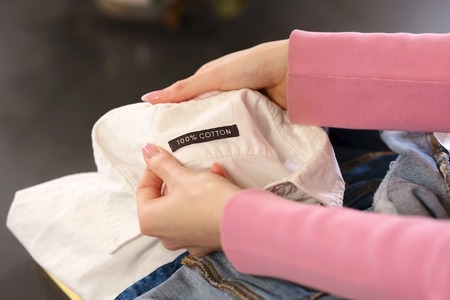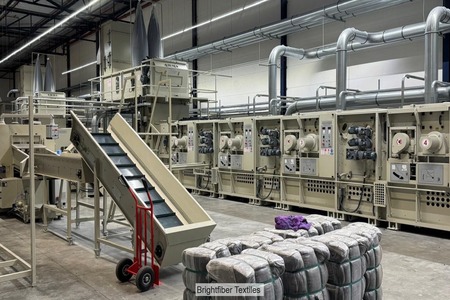
Nepal to launch project to help farmers raise goats for pashmina wool
YarnsandFibers News Bureau 2017-10-26 13:10:00 – KathmanduPashmina is one the Nepal’s main export items in terms of export earning but the domestic pashmina industry is presently consuming almost 90 percent of the yarn imported from China, resulting in low value addition, The Commerce Ministry plans to reduce dependence on imports and produce raw materials locally has started work to launch a project to help farmers to raise high hill goats (chyangra) for pashmina wool.
The country exported pashmina products worth Rs2.45 billion last year. Shipments to India and China were valued at Rs72.1 million and Rs25.5 million respectively, as per Nepal Rastra Bank.
Ministry spokesperson Rabi Shankar Sainju said that they have started consultations with the concerned government bodies including the Ministry of Agriculture Development to implement the scheme. According to him, they have also started talks with donor agencies and the Finance Ministry to obtain funding. The project is expected to cost Rs300 million.
The ministry is mulling to import improved breeds of chyangra from China or New Zealand. As per a study conducted four years ago by the Enhanced Integrated Framework (EIF), a wing under the World Trade Organisation, there are 50,000 goat farmers, each with 15-20 animals.
A goat can produce enough wool to make up to two pashmina shawls during a season. A pashmina shawl fetches $70-75 in the international market while the raw fibre costs up to $40 per kg.
The EIF, in collaboration with the International Trade Centre, recently concluded the first phase of the Pashmina Enhancement and Trade Support (PETS) project.
The $1.8-million scheme has helped to boost supply capacity and promote market and brand management of Nepali pashmina. The EIF is likely to support the production of raw materials needed to make pashmina products.
Sainju said that the ministry had been considering conducting the farmer assistance project under a public-private partnership model. He added that many goat farmers who had received subsidies under previous projects had sold their animals for meat instead of producing wool.
Therefore, they are doing a study of the social and cultural behaviour of farmers in various places in the country to find out whether they will be committed to rearing chyangra to produce wool.
According to the ministry, it is likely to provide support to farmers in the hilly areas of eastern Nepal or the high mountainous regions of Manang and Mustang districts. It also plans to provide subsidies of up to 80 percent to help farmers rear an estimated 100,000 goats.
According to Durga Thapa, president of the Nepal Pashmina Industries Association, the production of raw materials locally would help enhance the quality of Nepali pashmina products and also help make Nepali products competitive in the international market.
Market Intelligence
Ask for free sample Report

experience
Customer Base
dedicated team
Countries Served Worldwide








